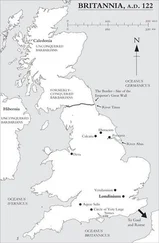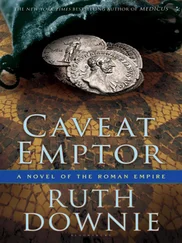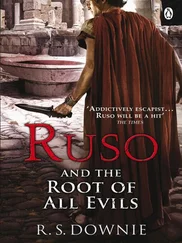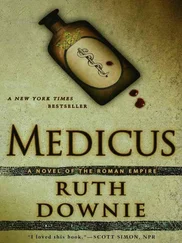Ruth Downie - Tabula Rasa
Здесь есть возможность читать онлайн «Ruth Downie - Tabula Rasa» весь текст электронной книги совершенно бесплатно (целиком полную версию без сокращений). В некоторых случаях можно слушать аудио, скачать через торрент в формате fb2 и присутствует краткое содержание. Год выпуска: 2014, ISBN: 2014, Издательство: Bloomsbury USA, Жанр: Исторический детектив, на английском языке. Описание произведения, (предисловие) а так же отзывы посетителей доступны на портале библиотеки ЛибКат.
- Название:Tabula Rasa
- Автор:
- Издательство:Bloomsbury USA
- Жанр:
- Год:2014
- ISBN:9781620403235
- Рейтинг книги:5 / 5. Голосов: 1
-
Избранное:Добавить в избранное
- Отзывы:
-
Ваша оценка:
- 100
- 1
- 2
- 3
- 4
- 5
Tabula Rasa: краткое содержание, описание и аннотация
Предлагаем к чтению аннотацию, описание, краткое содержание или предисловие (зависит от того, что написал сам автор книги «Tabula Rasa»). Если вы не нашли необходимую информацию о книге — напишите в комментариях, мы постараемся отыскать её.
Tabula Rasa — читать онлайн бесплатно полную книгу (весь текст) целиком
Ниже представлен текст книги, разбитый по страницам. Система сохранения места последней прочитанной страницы, позволяет с удобством читать онлайн бесплатно книгу «Tabula Rasa», без необходимости каждый раз заново искать на чём Вы остановились. Поставьте закладку, и сможете в любой момент перейти на страницу, на которой закончили чтение.
Интервал:
Закладка:
The legate’s physician did not look pleased to be refused entry. Ruso considered offering a tactful excuse and then decided he was not going to take the blame for Pertinax’s decision, so he told the truth and was accused of being territorial.
“I wasn’t,” Ruso told him. “But I am now. I’m sorry you’ve had a wasted trip, but he’s my patient and my superior, and I promised him his wishes would be respected.”
Something about the physician’s nostrils seemed to tighten. “I shall have to report this to the legate.”
“Good idea,” said Ruso. “He and the prefect can fight it out between them.”
He passed several members of staff as he strode down the corridor to the treatment room. There was something unusually respectful in the way they acknowledged him. He squared his shoulders and lifted his head. It was, he decided, good for morale to be heard standing up for one’s patients.
Tilla’s news was indeed urgent, and deeply worrying. He understood now why the horn had been sounded, and his plans to ignore whatever she said until later had to be set aside. Putting his head round the office door, he asked, “Has anyone heard anything about a native boy being brought in?”
Gracilis’s eyes appeared above the wall of writing tablets. Nisus twisted round on his stool. Neither had heard anything. “I want to know straightaway if you do,” Ruso told them, aware that he had been asking the same sort of question about Candidus just now. Gracilis must be wondering what sort of outfit he had joined. “If anybody wants me, I’m going to see Fabius.”
As he was about to leave, Gracilis said, “We were sorry to hear the news from your wife, sir.”
“Yes,” said Ruso, surprised that Tilla had told these two strangers about Branan before she spoke to him. It showed just how desperate she was. “It’s very worrying.”
Chapter 28
“You can be the one to tell him,” Ruso told his wife as they approached the little building that served as the fort HQ.
“Me?”
“You’re a native. He’ll be frightened of you.”
Passing the guard, Ruso was surprised to hear, “Sorry about your father, sir.”
He stopped. “My father?”
“It is a great shock,” said Tilla, seizing him by the arm and moving him on.
When they were in the cramped entrance hall waiting for Fabius, he hissed, “What about my father?”
“I had to get in here to tell you about Branan. His family are desperate. Imagine if it is our son.”
It was bad enough to have no son-impossible to make the next leap, and to imagine the pain of losing one. Instead he said, “What’s this got to do with my father?”
“I said to the guards, ‘I have to see the Medicus. I have bad news. His father is dead.’ ”
He slumped back against the wall as understanding dawned. Mercifully, no one here was likely to know that his father had died before he and Tilla had even met.
“I did not lie to them,” she insisted.
“Oh. Well, that makes everything fine, then.”
“Yes,” she said. “That is what I think too.”
Fabius looked alarmed when he was told that there was another missing person and that a soldier was to blame, but Tilla gave him no time to feel sorry for himself. “I am thinking, sir, that this is a good chance for you to be a friend to the local people.”
“A friend?” He looked incredulous. “They are accusing one of our men-”
“That is why they will thank you for making a search,” she said, interrupting, “just as you did for your own man who is missing.”
Fabius glanced at Ruso as if hoping he would get his wife under control. Ruso remained impassive.
Fabius said, “We get malicious rumors all the time. How do we know this isn’t another one?”
“I know the family, sir,” Tilla assured him. “And I have spoken to the boy who saw it happen.”
Again Fabius looked to his fellow officer. “If your wife has been implicated in this alleged kidnapping, Ruso, she has a good reason to shift the blame onto my men.”
“My wife doesn’t lie.” Too late, he remembered how she had got past the guards.
Tilla straightened her shoulders. “I am here to find the missing boy, sir.”
Fabius rubbed the side of his nose. “This so-called soldier was probably some native dressed up, wanting to cause trouble.”
“The witness saw a man from this legion, sir,” she insisted. “Not a centurion, just an ordinary soldier. If he was a local man, the boys would know him and know it was some sort of trick.”
Fabius sighed and muttered, “Why me?” as if he were the one in trouble.
From somewhere outside, Ruso thought he could hear shouting.
“If you send messages to the other forts, sir,” said Tilla, “and ask them to question their men and make a search of their buildings and land, and stop all vehicles on the road and look inside, the local people will think you are on their side.”
“Why would I want to-”
“Otherwise they will be wanting to come in and search themselves. I am thinking you will say no, which is your right, and then there will be complaints to the tribune and the legate and-”
“I know what will happen,” Fabius groaned. “One thing the natives are very good at is complaining.”
Someone was knocking on the door. “We do not want another Regulus,” put in Tilla, who had no way of knowing that she had already frightened him with the threat of a fresh reprimand from the tribune.
The new arrival brought a message to say there were angry natives gathering outside the south gate, and all the gates had now been barred. Two natives were demanding to speak to the commanding officer. “They say they’re the boy’s family, sir.”
“They’ll find a more senior officer over at camp.”
Apparently the watch captain had already growled that at them. “They don’t want to go the camp, sir. They want to come in here.”
Fabius’s head slumped into his hands. “Let them in. Just the two of them. Make sure you search them properly. And fetch Daminius. All this is giving me a headache.”
“It is giving everyone a headache, sir,” Tilla told him. “The only cure is to find the boy safe and well. Until then, my people cannot trust yours. Any man in the Legion could be the kidnapper.”
To Ruso’s relief, she decided to stop there and let Fabius mull over her demands. Outside, the shouting resolved itself into a chant.
Fabius’s irritable “What’s keeping them?” was answered when Senecio and Conn entered very slowly, the older man walking with a stick and leaning on his son’s arm.
Afterward Ruso always remembered the start of that meeting with shame. It was not the way father and son looked like cornered animals, caught between defiance and desperation. It was not the way Fabius turned to Tilla and demanded, “What is he saying?” after Senecio had abandoned his principles and asked in thickly accented but clear Latin, “Where is my son?” It was not Fabius’s insistence on pointing out that he personally had no idea where Senecio’s son was-something that left Conn observing aloud in British, “We are wasting our time with this one.” What left him angry and embarrassed was that the only seat in the room was occupied by a Roman centurion while an obviously lame old man who had suffered a terrible loss was left to stand under escort as if he were about to attack his hosts with his bony fists.
Ruso ordered one of the guards to go and fetch a seat and some water for the visitors. Fabius glared at him. Ruso pretended not to notice.
The old man’s eyes met his own. “My sons are my life,” he whispered.
From outside the gates-at least, he hoped it was outside-Ruso could hear the continued chanting of angry locals.
Читать дальшеИнтервал:
Закладка:
Похожие книги на «Tabula Rasa»
Представляем Вашему вниманию похожие книги на «Tabula Rasa» списком для выбора. Мы отобрали схожую по названию и смыслу литературу в надежде предоставить читателям больше вариантов отыскать новые, интересные, ещё непрочитанные произведения.
Обсуждение, отзывы о книге «Tabula Rasa» и просто собственные мнения читателей. Оставьте ваши комментарии, напишите, что Вы думаете о произведении, его смысле или главных героях. Укажите что конкретно понравилось, а что нет, и почему Вы так считаете.









![Антон Архангельский - Tabula Rasa - Исходная точка [калибрятина]](/books/392380/anton-arhangelskij-tabula-rasa-ishodnaya-tochka-k-thumb.webp)


